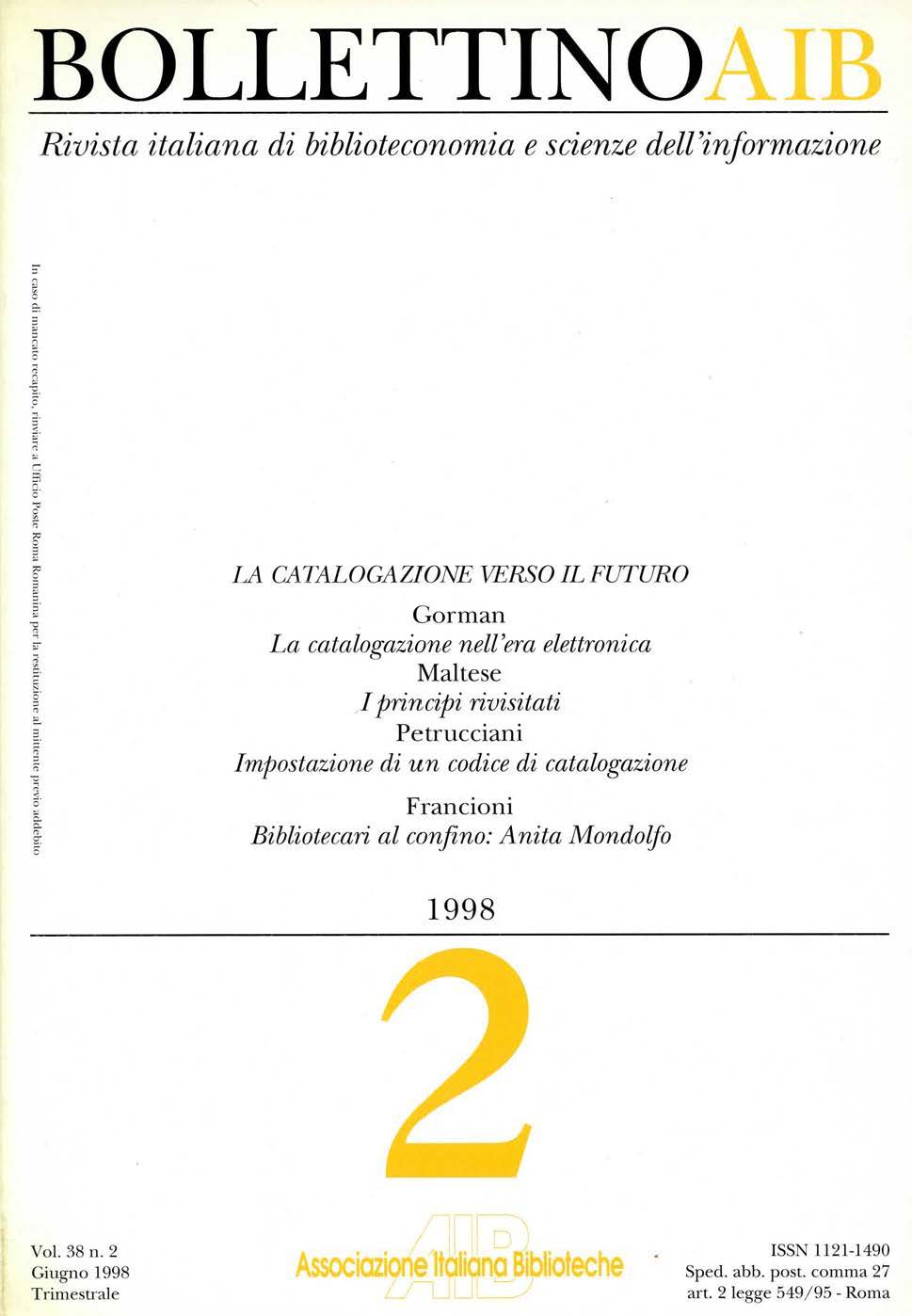I principi rivisitati
Contenuto principale dell'articolo
Abstract
Si analizzano le Regole italiane di catalogazione per autori (RICA), in relazione ai principi a cui sono ispirate e alle ragioni che concretamente ne giustificano le scelte, cercando di individuare negli uni e nelle altre possibili punti di partenza per una loro ragionata revisione ed equilibrato sviluppo. Secondo lo scrivente, il futuro della catalogazione anche in Italia ha le sue radici nelle norme scritte su principi internazionalmente accettati.
La pubblicazione delle RICA risale formalmente al 1979, un anno dopo la pubblicazione delle AACR2. Il testo è sostanzialmente fedele all'impostazione iniziale improntata al rispetto dei principi di catalogazione sottoscritti, nel 1961, dalla delegazione italiana alla Conferenza internazionale di Parigi.
Le RICA, il cui nucleo si ispira alle idee di Lubetzky, si sono poste subito come un codice radicalmente innovativo rispetto al codice precedente.
Oggi, da più parti, se ne chiede la revisione, essendo mancato fino ad adesso un programma di manutenzione costante.
Per quanto riguarda l'ISBD, è uno standard internazionale, come lo sono i principi di Parigi, e come tale va tradotto in norme nazionali di descrizione catalografica, ma non letteralmente incorporato nel codice stesso.
Uno dei principi significativi delle RICA è il rigore con cui è inteso il concetto di autore, ai fini della scelta dell'intestazione di una scheda, in quanto titolare della paternità intellettuale di un'opera e non di una forma diversa di responsabilità. Questa definizione è particolarmente impegnativa nel caso in cui l'autore è un ente collettivo.
Nei casi in cui le condizioni non siano pienamente soddisfatte, le RICA prescrivono l'alternativa dell'accesso direttamente dal titolo.
Un altro punto da chiarire è come vadano intese le intestazioni complesse per certi enti nel catalogo per autori.
Parlando di intestazione, non si può non toccare la questione della scheda principale, a cui si tende a negare validità e significato nel contesto di nuove forme di catalogo.
Le RICA rispettano rigorosamente il principio di basare l'intestazione uniforme sul nome con cui l'autore è più frequentemente identificato in edizioni delle sue opere nella lingua originale, ma forse non hanno tratto tutte le conseguenze dell'eccezione a favore di un altro nome o forma del nome, che sia divenuta costante o prevalente nell'uso generale della letteratura corrente e nei comuni repertori.
Le RICA non ammettono deroghe al principio dell'uniformità dell'intestazione, nemmeno nel caso in cui un autore usi un nome particolare solo per certe opere e non per altre. Questa deroga è una delle innovazioni più significative delle AACR2.
La revisione delle RICA deve essere preceduta da una prolungata attività di raccolta di interpretazioni e decisioni autorevoli, che dovrebbe essere compito della Commissione permanente istituita presso l'Ufficio centrale per i beni librari, con il conforto privilegiato del punto di vista dell'associazione professionale dei bibliotecari italiani.
Dettagli dell'articolo

Questo lavoro è fornito con la licenza Creative Commons Attribuzione - Condividi allo stesso modo 4.0.
